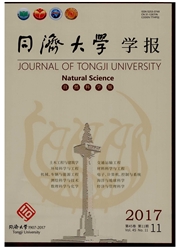

 中文摘要:
中文摘要:
在项目型组织之间平等合作的基础上,引入公平偏好理论,从最大化项目价值增值效用角度,建立项目导向型供应链跨组织双向激励模型,剖析项目型组织的努力水平、公平偏好程度、支付成本和分配系数对项目价值增值的影响,并对模型分析结果进行数据模拟和算例分析.结果表明,在项目型组织具有公平偏好情况下,项目导向型供应链实施跨组织双向激励策略不仅可实现项目价值增值的最大化,使得项目型组织合理分配资源和努力水平,而且可实现合作双方收益的改善和支付成本的降低.
 英文摘要:
英文摘要:
On the basis of equal cooperation between project-based enterprises,the fairness preference theory was applied to constructing project-based supply chain cross-organizational bidirectional incentives model from the view of maximizing project value-adding,thus an analysis was made of the influence of project-based enterprises' effects level,fairness preference degree and project value-adding allocation coefficient on project-based supply chain project value-adding,and then the related digital simulation and example analysis were presented for the purpose of proofing the model theoretical analysis conclusions.The results reflect that,while under the condition that project-based enterprises have fairness preference,the project-based supply chain implemented cross-organizational bidirectional incentives strategy not only can achieve project value-adding maximization,which prompts project-based enterprises allocating resources and efforts level reasonably,but as well realize project-based supply chain benefits improvement and payment cost reduction between the cooperative partners.
 同期刊论文项目
同期刊论文项目
 同项目期刊论文
同项目期刊论文
 期刊信息
期刊信息
